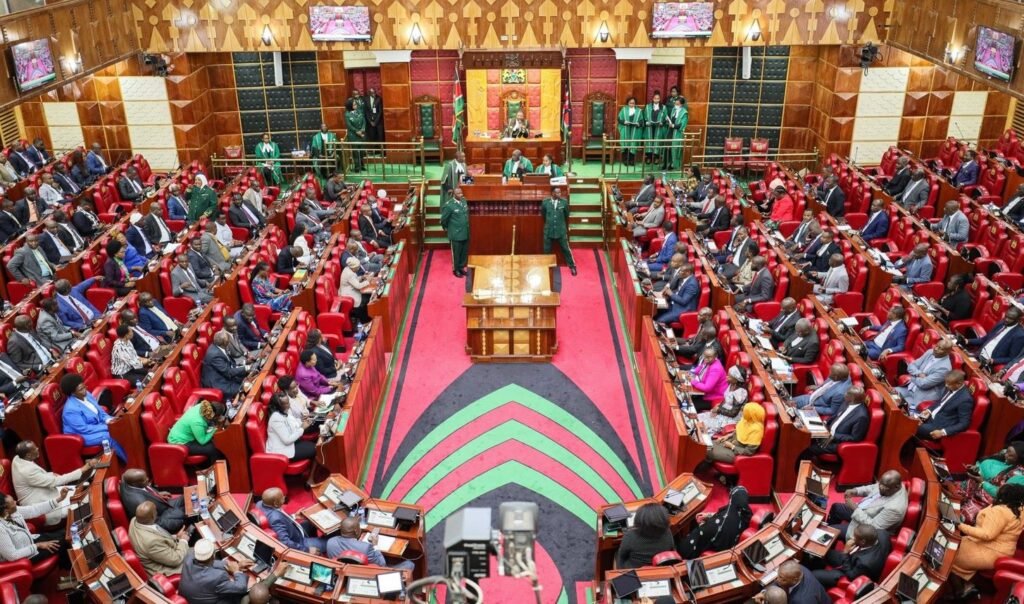Kenya’s National Assembly is set to debate the Finance Bill 2025, a legislative proposal tabled on 30th April 2025. The bill aims to streamline tax administration, close loopholes, and foster economic resilience amid ongoing fiscal consolidation in the country.
Notably, it avoids introducing new taxes following public backlash over the 2024 bill. Instead, it prioritises efficiency and compliance while offering targeted relief to small businesses and digital innovators.
A key highlight of the bill is a 100 per cent immediate tax deduction for small businesses acquiring tools and equipment. This measure is intended to spur growth and eliminate bureaucratic delays in accessing tax relief. Additionally, the digital assets access tax is set to be halved from three per cent to 1.5 per cent of transaction value, easing the burden on Kenya’s fast-growing tech sector.
Government spokesperson Isaac Mwaura noted that the bill also benefits retirees: “They won’t pay tax on their pension (both lump sum and monthly payments), thus getting a higher pay to live a more comfortable life after serving the country.”
This exemption will now apply to private insurance pension schemes, which were previously excluded, enhancing financial independence for retirees.
To broaden the tax base, the bill proposes expanding the Significant Economic Presence Tax (SEPT) by removing the KES 5 million annual turnover exemption for non-resident entities earning income through digital services in Kenya.
Meanwhile, the government plans to replace zero-rating on essential goods such as pharmaceutical raw materials and solar batteries with VAT exemptions—a move some critics argue may lead to inflation in product costs. Conversely, the Export and Investment Promotion Levy on construction materials is to be reduced from 17.5 per cent to five per cent, in line with efforts to attract foreign investors.
The bill also introduces Advance Pricing Agreements (APAs) for multinationals, allowing pre-negotiated transfer pricing terms to reduce tax disputes. Additionally, tax authorities will have an extended window—from 90 days to 120 days—to review VAT refund claims.
Controversially, the Kenya Revenue Authority (KRA) is to be granted access to taxpayer financial data, a move defended by MP John Mbadi as essential to curbing tax evasion among high-net-worth individuals. The KRA will also begin using artificial intelligence tools to detect fraudulent activity.
The bill’s emphasis on administrative reform follows the deadly protests of 2024, which led the government to abandon KES 346 billion in proposed taxes. Although the current version aims to raise a more modest KES 25 to 30 billion, concerns persist. Experts warn that removing pension tax reliefs may discourage long-term saving, and changes to VAT classifications could increase the cost of essential goods.
Parliament is expected to vote on the bill by 30th June 2025, with most measures due to take effect from 1st July 2025. As public participation forums continue through 27th May 2025, stakeholders are calling on lawmakers to balance revenue needs with inclusive and equitable economic growth.
– By Nusurah Nuhu


